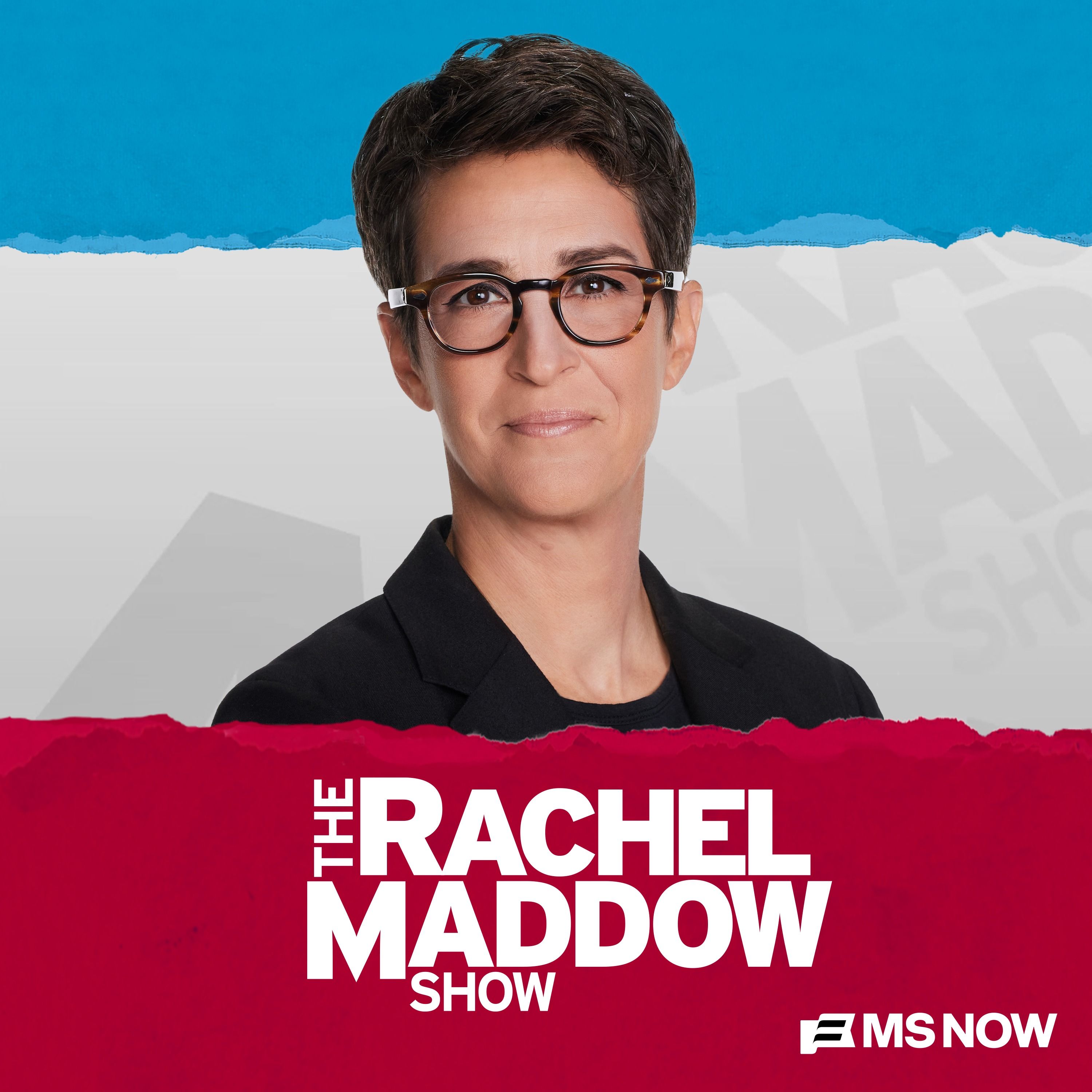
That's Life, I Swear
Every Wednesday, join Rick Barron as he unravels the intricate threads of life's most captivating stories. From heart-pounding political dramas to the awe-inspiring challenges of climate change, he explores the topics that shape our world and define our era.
But this isn't just another talk show. Rick delves deep into the human psyche, examining our beliefs, behaviors, and the obstacles we overcome. He celebrates our triumphs and embraces our imperfections, uncovering the profound lessons hidden in everyday experiences.
The episodes are a journey of self-discovery as he shares stories that mirror our collective identity. These tales aren't just entertaining – they're a reflection of who we are, who we were, and who we aspire to be. They carry the weight of our ancestral legacy, the fire of our dreams, and the depths of our pain.
With each episode, you'll confront your deepest anxieties about yourself, your place in the world, and the future that awaits us all. In understanding these complexities, you'll find inspiration, connection, and perhaps even transformation.
"That's Life, I Swear" isn't just a podcast – it's a weekly rendezvous with the extraordinary nature of ordinary life. Subscribe now, wherever you get your podcasts, and join Rick on this unforgettable exploration of the human experience. After all, that's life, I swear.
That's Life, I Swear
Biden's 2024 Exit: Why He Chose Country Over a Second Term
President Joe Biden made a decision that shocked the political world; despite believing he could win a second term. There are those things in life that are greater than ourselves. For President Biden, it was his party, but more importantly, the country.
supporting links
1. President Joe Biden [Wikipedia]
2. Democratic Party [Wikipedia]
3. Inside Biden’s unprecedented exit from the presidential race [CNN]
Kamala Harris [Wikipedia]
Contact That's Life, I Swear
- Visit my website: https://www.thatslifeiswear.com
- Twitter at @RedPhantom
- Bluesky at @rickbarron.bsky.social
- Email us at https://www.thatslifeiswear.com/contact/
Episode Review
- Submit on Apple Podcast
- Submit on That's Life, I Swear website
Other topics?
- Do you have topics of interest you'd like to hear for future podcasts? Please email us
Interviews
- Contact me here https://www.thatslifeiswear.com/contact/, if you wish to be a guest for a interview on a topic of interest
Listen to podcast audios
- Apple https://apple.co/3MAFxhb
- Spotify https://spoti.fi/3xCzww4
- My Website: https://bit.ly/39CE9MB
Other
- Music ...
⏱️ 14 min read
President Joe Biden made a decision that shocked the political world. On July 21, 2024, despite believing he could win a second term, Biden stepped aside, not because he lacked confidence, but because he feared the cost—tearing apart the party he had dedicated his life to. What really happened behind closed doors? And what does it mean for the future of American politics?
Welcome to That's Life, I Swear. This podcast is about life's happenings in this world that conjure up such words as intriguing, frightening, life-changing, inspiring, and more. I'm Rick Barron your host.
That said, here's the rest of this story
Solitude enveloped him at last.
It was a moment he never expected to happen. However, politics has been nothing but full of surprises in 2024.
President Biden found himself isolated in a guest room of his getaway residence, battling sporadic Covid-induced coughs. As night fell on Saturday, July 20, he retired to bed, drained. Those in his inner circle reported that, whether he slept peacefully, restlessly, or not at all, the president used this time of seclusion to contemplate the momentous choice that lay before him.
The preceding 48 hours in Rehoboth Beach, Delaware, had been grueling. He had engaged in intense discussions with his spouse, Jill Biden, and his most trusted advisors, alternating between a covered veranda and a lounge adjacent to the dining area.
That Saturday, Steve Ricchetti, the president's liaison to Congress, and Mike Donilon, his chief strategist, presented Mr. Biden with internal survey results.
The numbers were not kind and hard to digest.
The data echoed what the public had been observing for some time: the president was losing ground both nationally and in crucial swing states.
They counseled him that while victory remained possible, the campaign ahead would be bitter. The president would face opposition from his financial backers, half of the Democratic lawmakers, and party supporters who had determined he was too senior to secure another term.
For nearly a month, Mr. Biden had maintained his resolve to continue his campaign. He had declared that only divine intervention could persuade him to withdraw. The word ‘quit’ wasn’t was part of President Biden’s vocabulary.
However, a transformation was underway as twilight descended that Saturday.
Those close to Mr. Biden assert it wasn't merely about survey results. Despite the challenges, the president remained confident in securing the Democratic nomination and triumph over former President Donald J. Trump. His aides maintain that this belief persists.
As time ticked away, it was becoming more apparent that ‘divine intervention’ was knocking on the door. According to individuals familiar with his thought process, what began to sway the president's perspective was the dawning realization that persisting in the race would lead to an isolated struggle that would fracture the Democratic Party - the institution to which he had dedicated nearly his entire career. Would a man who prides himself on being Washington's ultimate unifier be willing to ignite an internal conflict that contradicted his very essence?
On that day, Mr. Biden posed a crucial query.
"If we were to proceed," he asked his two advisors, "how would we frame it?"
A statement was composed, its existence known only to four additional individuals: the First Lady and her closest associate, Anthony Bernal; the president's son Hunter; and Annie Tomasini, the White House gatekeeper and the president's deputy chief of staff.
Before finalizing anything, he requested some time for contemplation. At 9 p.m. that evening, the president withdrew. It was time to conclude the day's deliberations.
An Uphill Battle
Mr. Biden's withdrawal from the race appeared almost unavoidable to external observers.
For several weeks, surveys had consistently revealed that most voters were eagerly seeking an alternative candidate. With each passing day, more Democratic representatives publicly urged him to step down, arguing that victory was out of reach.
Financial backers canceled fundraising events and ceased their contributions. Celebrities from Hollywood and liberal television commentators withdrew their support. Yes, even George Clooney.
However, those within the intimate circle of family members and advisers who stood by the president until the very end maintain that the narrative of Mr. Biden's shift from defiance to acceptance was not about persuading him of his inevitable defeat. According to individuals close enough to Mr. Biden to understand his mindset, speaking on condition of anonymity to discuss the president's final hours of decision-making, this never occurred.
There was no convening of the Biden family, as had been customary in previous years when Mr. Biden faced major political decisions. Ever since the debate on June 27, 2024 with Mr. Trump in Atlanta had raised serious concerns about the president's capabilities, his children and grandchildren had expressed their unwavering support for whatever course of action he chose to pursue. In the final days, the group surrounding Mr. Biden had contracted to its smallest size: consisting only of his wife and his most trusted advisers. Hunter Biden, residing in Los Angeles, maintained regular contact via phone.
Those in the president's inner circle assert that while the stark reality wasn't sugar-coated for him, Mr. Biden never wavered in his conviction that he would have secured the party's nomination had he persisted and could have triumphed over Mr. Trump. Merely 24 hours before drafting his statement in Rehoboth Beach, Mr. Biden received a call from Ron Klain, his initial chief of staff, who implored him to continue his campaign.
"That remains my plan," Mr. Biden informed Mr. Klain on Friday evening.
As Saturday dawned, the First Lady convened with Mr. Bernal and Ms. Tomasini in the modest lounge adjacent to the dining area. Dr. Biden had been forthright with her husband for days: This is your choice. You must reach a decision independently, but we need to understand your true feelings and thoughts.
At approximately 4 p.m., Mr. Donilon joined Mr. Ricchetti at the seaside residence. Both men had been constant fixtures by the president's side since the debate, relaying real-time updates about the increasing calls for his withdrawal.
The trio relocated to the enclosed veranda at the rear of the sprawling 7,000-square-foot home, within earshot of the crashing waves. Hunter Biden participated via speakerphone.
Mr. Donilon and Mr. Ricchetti, seasoned political veterans, comprehended the significance of having a viable path to victory. They assured the president that such a path existed. While it was true that poll numbers were declining, they believed the margins were not insurmountable.
Mr. Ricchetti and Mr. Donilon emphasized that the delegates he had secured during the primaries were already committed to him. They asserted that if he chose to remain in the race, it would be nearly impossible for another candidate to wrest these delegates away.
However, they noted his increasing political isolation.
An alarming number of his supporters advocated for his withdrawal, and this trend was only expected to intensify.
By this juncture, the president was exhausted. In the aftermath of the debate, he had been striving to redirect attention to the threat posed by Mr. Trump. Yet, his efforts seemed futile, even as he fought for survival against what he perceived as an unjust campaign to dislodge him from his rightful position at the helm of the ticket.
Still battling the effects of Covid, with persistent coughing and a raspy voice, Mr. Biden was becoming more receptive to the appeals from his allies to step aside — although he fundamentally disagreed with their rationale.
Mr. Donilon and Mr. Ricchetti reaffirmed their faith in the president. They maintained that victory was still within reach but cautioned that it would require a monumental effort.
Had Mr. Biden has been resolute about continuing his campaign, he could have challenged Mr. Donilon and Mr. Ricchetti's assessment or requested more substantial evidence. However, according to those privy to the conversation, he offered no objections to the polling data's accuracy and didn't ask for additional information despite weeks of publicly questioning poll reliability.
Instead, he broached a subject that had once seemed inconceivable: withdrawing from the race. He expressed a desire to begin drafting an announcement.
The trio emerged to confer with the others. While Mr. Biden didn't explicitly state his decision, it was evident to all present that he was inclined towards stepping down, a development that didn't surprise anyone. He instructed Mr. Donilon and Mr. Ricchetti to start working on a statement while the rest of the group took a break for a pizza dinner.
When the president reconvened with his two political advisers, they continued refining the statement until he announced his intention to retire for the night. He wanted to sleep on the decision.
The following day, he concluded his re-election bid with a concise letter shared on social media, bringing nearly five decades of public service to a close. His choice would solidify his place in history as a single-term president and instantly transform the landscape of the 2024 election.
Beyond Personal Aspirations
That weekend, Mr. Biden seemed to fully grasp the extent of the divisions within his party, as he would later explain.
"You see," Mr. Biden explained to Robert Costa of CBS News in a Sunday interview, "Our internal polls indicated a tight race, potentially down to the wire. However, many of my Democratic colleagues in Congress believed my candidacy might negatively impact their campaigns. I was worried that this concern would become the focal point if I remained in the race."
"I felt it could become a significant distraction," he added.
Yet, this explanation only scratches the surface.
Throughout his career, Mr. Biden had consistently concluded his speeches with a characteristic message of hope about the nation he had served for decades: "There's no limit to what America can achieve — when we stand united."
This sentiment encapsulated the core of his political identity.
In his Oval Office address a few days after withdrawing from the race, the president alluded to the rationale that had swayed him, suggesting he could no longer envision a re-election campaign aligned with his core beliefs.
"It's become evident to me in recent weeks that unifying my party for this crucial task was paramount," Mr. Biden stated. "While I believe my presidential record, global leadership, and vision for America's future warranted a second term, nothing — absolutely nothing — can take precedence over safeguarding our democracy."
"This includes," he continued, "personal aspirations."
Following the announcement of his decision on Sunday, July 21, 2024, Mr. Biden dedicated much of the day to phone calls, expressing gratitude to individuals like Representative James Clyburn of South Carolina and former Representative Cedric Richmond. Though still recuperating from Covid, his voice was regaining strength.
Throughout nearly five decades of public service, Mr. Biden had twice fallen short in his presidential bids before finally securing victory at 77. Now, at 81, he had chosen to step aside. In the ensuing weeks, those close to Mr. Biden would describe him as harboring resentment and anger towards the Democratic allies who had played a role in orchestrating his exit.
However, he showed no signs of these emotions on that particular Sunday and looked very calm about his decision.
So, the Democratic Party, party supporters, and voters got the change they wanted. Now, it’s your turn to put your money where your mouth is. In a word…vote!
What can we learn from this story? What's the takeaway?
There are those things in life that are greater than ourselves. For President Biden, it was his party, but more importantly, the country. President Biden is passing the torch to Vice President Harris, which changes the narrative of the race against former President Donald Trump.
Many Democrats are calling Biden’s concession patriotic and selfless, in part an attempt to draw a contrast with Trump.
Historian Jon Meacham, said it best, and I quote: As a historical matter, very, very few people do this, and in an era where so many of us privilege power over principle, where a lot of us would rather take than give, I think it’s a moment for the country to consider that the president has given us a lesson: that our own wishes, our own immediate desires, should not always be controlling.” End quote.
Well, there you go, my friends; that's life, I swear
For further information regarding the material covered in this episode, I invite you to visit my website, which you can find on Apple Podcasts/iTunes, for show notes and the episode transcript.
As always, I thank you for the privilege of you listening and your interest.
Be sure to subscribe here or wherever you get your podcast so you don't miss an episode. See you soon.
Podcasts we love
Check out these other fine podcasts recommended by us, not an algorithm.

TED Talks Daily
TED
WTF with Marc Maron Podcast
Marc Maron
The Ezra Klein Show
New York Times Opinion
Hard Fork
The New York Times
Global News Podcast
BBC World Service
The Moth
The Moth
Bold Names
The Wall Street Journal
The Interview
The New York Times
The Rachel Maddow Show
Rachel Maddow, MS NOW
Most Innovative Companies
Fast Company
